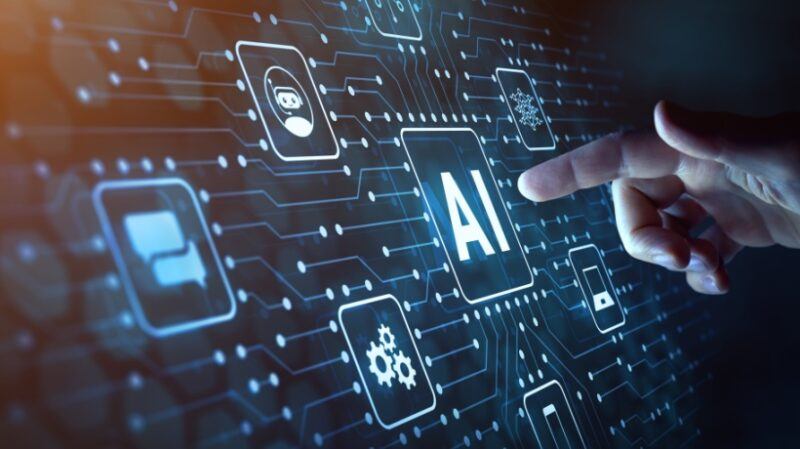
Introducing AI in education
The education landscape is undergoing deep transformation, supported by the revolutionary capabilities of adaptive learning with AI. This innovative approach utilizes the power of artificial intelligence to tailor the teaching experience to each student’s individual needs, creating a paradigm shift towards a more personalized and efficient learning process. By embracing AI-powered adaptive learning, educators can unlock unprecedented levels of engagement and academic achievement, paving the way for a brighter future for education.
Understanding artificial intelligence-driven adaptive learning
AI-powered adaptive learning systems are at the forefront of educational innovation and offer a bespoke learning experience that dynamically adjusts based on each student’s unique learning style, pace and level of understanding. This sophisticated technology preemptively identifies areas of difficulty and provides targeted resources and coordinated interventions to ensure content mastery. These systems utilize complex algorithms and machine learning techniques to analyze huge datasets from student interactions, continually improving and optimizing the curriculum to suit each learner’s progress. This not only enhances the educational experience, it also allows educators to personalize their educational approaches, promoting an environment that maximizes student potential and success.
Student Impact: Personalization and Engagement
For students, the introduction of AI-powered adaptive learning represents a monumental shift towards more personalized education. Traditional, one-size-fit methodological methodology often falls short of addressing the diverse learning needs that exist in the classroom. However, the ability of AI to customize learning pathways allows students to experience a more engaging and rewarding educational journey. Through interactive lessons, real-time feedback and adaptive tasks, learners are curious and willing to pursue knowledge with confidence. As a result, this results in higher retention, improved academic achievement and most importantly, a lifelong love for learning. Future classrooms will become a dynamic exploration hub where each student’s potential is recognized and nurtured.
The role of educators in the Ai-Enhanced classroom
While students enjoy the benefits of personalized learning, educators play a pivotal role in effectively integrating AI technologies within classroom settings. Far from replacing teachers, artificial intelligence is a valuable tool to enhance education strategies and provides insightful data to inform your curriculum and pedagogical decisions. Educators can focus more on creative and analytical tasks, such as developing innovative lesson plans and encouraging students to think critically. Furthermore, AI-powered systems provide teachers with a wealth of analytics that highlight student progress, allowing for more accurate intervention and support for struggling learners. This synergistic relationship between teachers and technology creates a robust teaching framework designed to optimize student success and teacher effectiveness.
Challenges and ethical considerations in AI learning
The adoption of AI-driven adaptive learning in education is promising, but not without its challenges and ethical implications. Concerns surrounding data privacy, security, and digital disparities need to be addressed to ensure equitable access to technology-enhanced education. Institutions should implement strict data protection measures to protect student information and promote a safe learning environment. Additionally, it is important to address potential disparities in access to devices and high-speed internet, ensuring that AI technology acts as a tool to include rather than exclude. Additionally, educators and policymakers must work together to establish ethical guidelines governing the use of AI in education to maintain a balance between innovation and ethical management.
AI in various education sectors
The transformational power of AI-powered adaptive learning has been extended to multiple education sectors, each experiencing its benefits in its own way. In higher education, personalized learning pathways help non-traditional students balance research with professional and personal commitment, increasing accessibility and flexibility. In K-12 education, AI strengthens classroom engagement through gaming learning experiences and interactive tutorials that captivate the interest of young learners. Furthermore, in the field of professional development, AI will help deliver targeted training programs that cater to specific skill gaps, allowing employees to remain competitive in the ever-evolving job market. Such a wide range of applications highlight the pivotal role of AI in revolutionizing education globally.
Future preparation for digital-first education
As educational institutions strive to integrate AI-powered adaptive learning, it is essential to embrace a digital-first mindset that prioritizes innovation and strategic planning. Schools and universities should invest in technology infrastructure, professional development for educators, and curating digital resources that support adaptive learning environments. Collaboration with technology partners provides valuable insights and expertise in deploying AI solutions, allowing these initiatives to align with the institution’s educational goals and values. As we move from 2025 onwards, it is important that stakeholders are actively involved in dialogue that shapes policies and practices that support a seamless transition into this new era of education.
Conclusion: embracing AI-driven educational transformation
In summary, artificial intelligence-driven adaptive learning will mark a new dawn of education and provide unparalleled opportunities for personalized learning, student engagement and academic achievement. By embracing this transformative technology, educators can shape their future by prioritizing innovation, equity and empowerment. However, navigating the complexities of AI integration requires thoughtful planning and collaboration between all educational stakeholders to address ethical, technical and logistical challenges.
Impelsys
Impelsys is a leading provider of learner-centric digital courseware solutions and comprehensive end-to-end learning management platforms. We bring over 20 years of experience in developing interactive, personalized and engaging custom e-learning courses.


